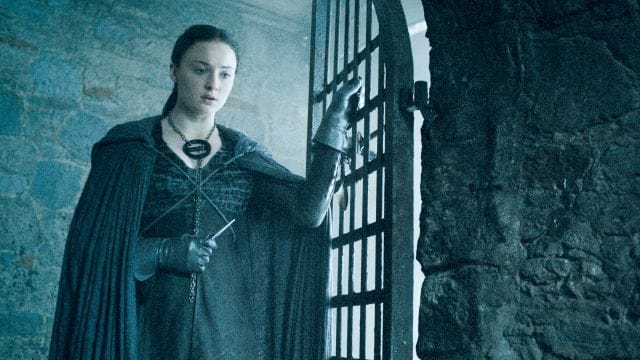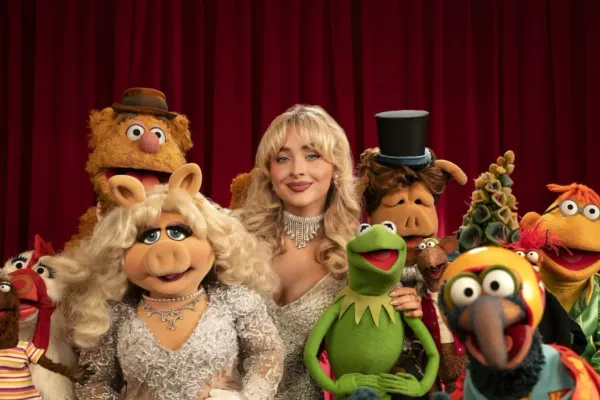Episodes: Why we all decided we don't like rape scenes at once (spoilers for everything)

If you read a lot of TV criticism, the spring of 2015 must have seemed as if every critic on Earth had decided to start suggesting rape scenes shouldn't ever happen. This had been building for a while. There were minor skirmishes over Game of Thrones and Tyrant in 2014, and the notion of rape scenes being cheap ways of building dramatic tension is a very old one. But the many, many arguments about how Game of Thrones treats its female characters as punching bags for the plot really took root in 2015.
Some of this is mercenary. You kept reading those articles, so we kept writing them. Some of it is that most TV critics have at least a rudimentary understanding that rape scenes have a very high bar to cross to be dramatically necessary. And some of it was just that, hey, we are talking about this stuff a lot in the culture, in ways that aren't always reflected on our TV screens. The debates over campus sexual assault and enthusiastic consent can't be borne out in Game of Thrones because it's about people who would have no conception of those ideas, but they still loom over the show's head, in ways both completely unfair and kind of damning.
Or, put another way, let's talk about torture.
Torture storylines were everywhere about 10 years ago. If you watch a lot of shows from roughly 2003 through 2007, you will see nearly every one of them attempt a story about someone torturing someone to get information. Usually, they do get the information they need, sometimes at a cost to their soul, sometimes in a way that proves their own awesomeness. Like, this even turns up in Lost, a show where it's really sort of incidental to the proceedings. The creators had to put a former torturer there to be able to work in this theme, yet there he was.
In and of itself, a torture storyline wasn't a big deal. In a vacuum, Jack Bauer doing despicable things to get the information he needed was tremendously exciting. But Jack didn't exist in a vacuum, and I don't even need to bring in obvious real-world events to prove this point. By roughly the midpoint of 24's run, so many shows were doing torture storylines, in such similar ways, that Jack's antics had to compete with the ghosts of all of those other shows standing right alongside him. To combat that, 24 kept raising the stakes, and it eventually ran out of runway and crashed spectacularly. (If you haven't watched the sixth season recently, give it a shot. It's like a drinking game created a TV show.)
What these torture storylines eventually started to reflect was that the focus was almost always on the torturer, not the person who was tortured. And there was some rich, soulful work done in this vein (again, especially, on Lost)! But these stories started to feel more and more hollow. Shouldn't we be worried about the people being tortured? Why wasn't TV doing that? Why was it always putting us in the shoes of the torturer, unless we were being forced to confront that, yeah, that's who we were as a nation now? If you watched a lot of TV, as critics do, it was like a sudden crystallization. The success of 24 and Lost led to a legion of shows that took torture even less seriously, made it cheap.
The same thing has happened with rapes and attempted rapes on TV. I'm writing about this because there's an attempted rape in an upcoming episode of TV that so angered me that I wanted to take back anything nice I've ever said about the show (and I've said some nice things!). It wasn't that the show tried to do a rape storyline; it was that it used it for cheap thrills, an easy way to goose the dramatic tension that makes light of one of the most serious things that can happen to a person. (It's also a show that didn't even need to move rape into the text because it's inherent to the series' genre subtext.)
The thing that I think most people will admit when you get right down to it is that Game of Thrones, for the most part, handles its culture of sexual violence pretty well. (The two exceptions were the Jaime-Cersei scene in season four that no one involved realized was a rape and the Sansa scene in season five that couldn't find an effective way to present the scene's horrors without making the story seem to be about Theon.) The problem is that Game of Thrones, like 24, now has all of these other shows hanging out with it in its corner, right at a moment when academic terms like "rape culture" are making their way into the greater cultural lexicon.
The usual response to critics who complain about cheap rape stories (and who complained about cheap torture stories) is that tons of people are murdered on TV with every new primetime bloc. This is true! But murder works so well as a plot device because it doesn't endure. If you're murdered, you're dead. That's it. If you're tortured or raped, though, the aftermath moves in and never leaves. And TV, by its very nature, is terrible at aftermath, because it's always about moving forward.
This is not to say TV should never tell stories about rape or torture. Indeed, The Americans is, right now, providing a master class in how to tell a story about how a rape survivor deals with the aftermath of what happened to her every single day of her life. But if you're going to tell a story that invites aftermath in television, you have to be prepared to deal with that. You've set the table for a house guest who will never leave your characters, and if you're not ready to make that a part of your story going forward, then why do it in the first place?
--
Episodes is published daily, Monday through Friday, unless I don't feel like it. It is mostly about television, except when it's not. Suggest topics for future installments via email or on Twitter. Read more of my work at Vox Dot Com.




